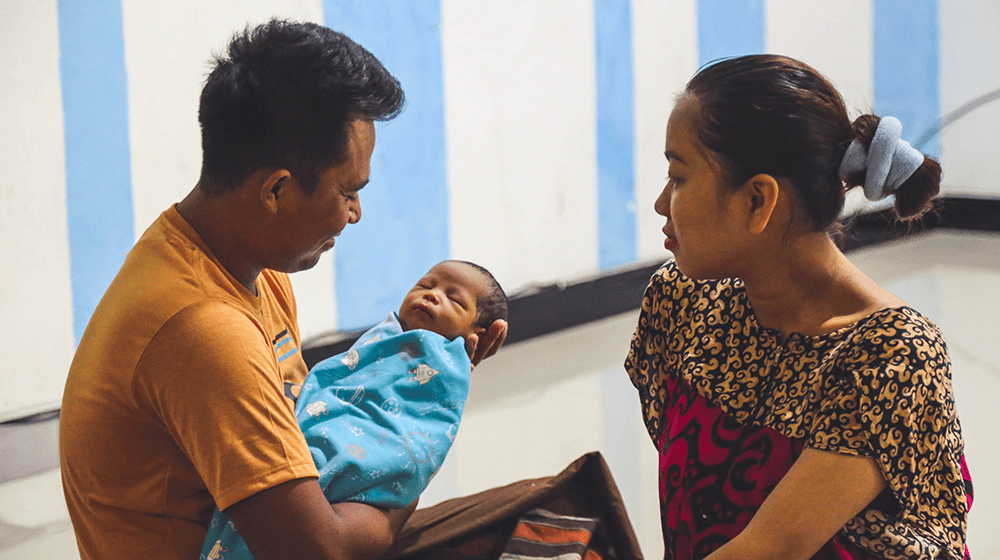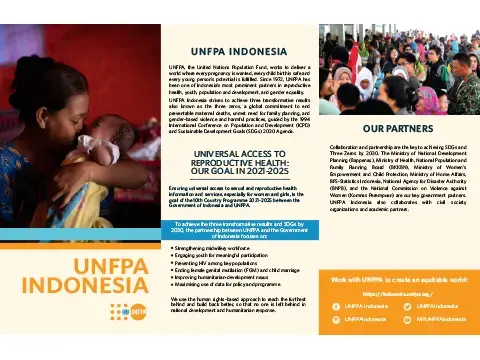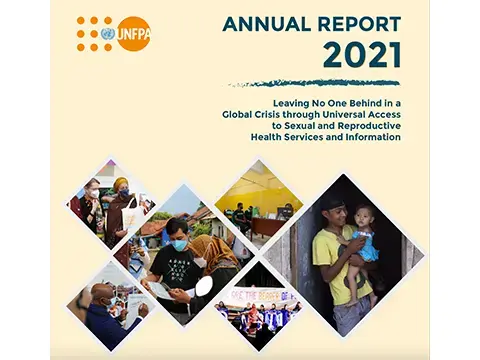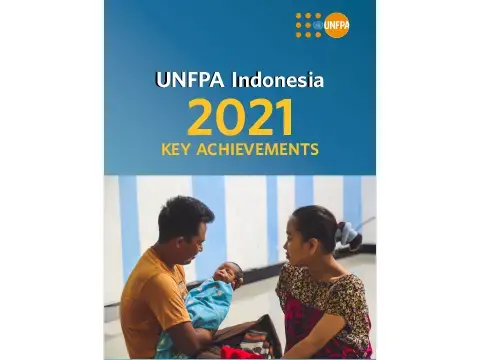“Cleaning, washing dishes are not only women’s responsibilities but also men's. We must share responsibilities,” said Abdurrahman, a 32-year-old community facilitator in Tenige Village, North Lombok, West Nusa Tenggara (NTB).
Abdurrahman was one of the participants of the pilot programme of community-based prevention of GBV and harmful practices in Teniga and Tanjung villages in North Lombok District led by the United Nations Population Fund (UNFPA) and Ministry of Women’s Empowerment and Child Protection (MOWECP). As gender equality can only be achieved with the involvement of everyone in society, the programme engaged men and boys in the elimination of gender-based violence (GBV) and harmful practices like child marriage and female genital mutilation/cutting (FGM/C). The programme involved male figures in women’s and children’s lives, including husbands, fathers, sons, brothers, peers, and teachers as the primary prevention strategy.
Started in 2019, the programme was implemented with the North Lombok District Office of Social Affairs for Women’s Empowerment and Child Protection North Lombok (DOWECP), Lembaga Perlindungan Anak (Child Protection Institution), and Lembaga Pengembangan Sumber Daya Manusia (Human Resource Development Institute), with the support of Global Affairs Canada as part of a joint initiative with UNICEF entitled the Better Sexual and Reproductive Health and Rights for All in Indonesia (BERANI).
Hundreds of people, including youth, participated in various activities such as training, discussions, community projects, and initiatives. Some of the significant achievements of this programme included the endorsement of two village regulations on GBV and harmful practices prevention in both Teniga and Tanjung villages, the establishment of the Child Village Forum, and the budget allocation to fund activities to promote eliminating GBV and harmful practices by the local government.
More profoundly, in its effort to promote zero tolerance of violence against women and girls in their families and the village, the programme has encouraged young people to be more confident in expressing their opinions and be more active in their community, and influenced change of perspectives among men and boys,
“We learned about why gender equality is important and the division of tasks among women and men,” Abdurrahman recalled. After participating in the training and group discussions, he explained that young people in Tenige village reached a consensus that all forms of violence must end, and that gender equality must be realized not just among young people, but also within the family. “We all agreed to end all forms of violence,” he affirmed.
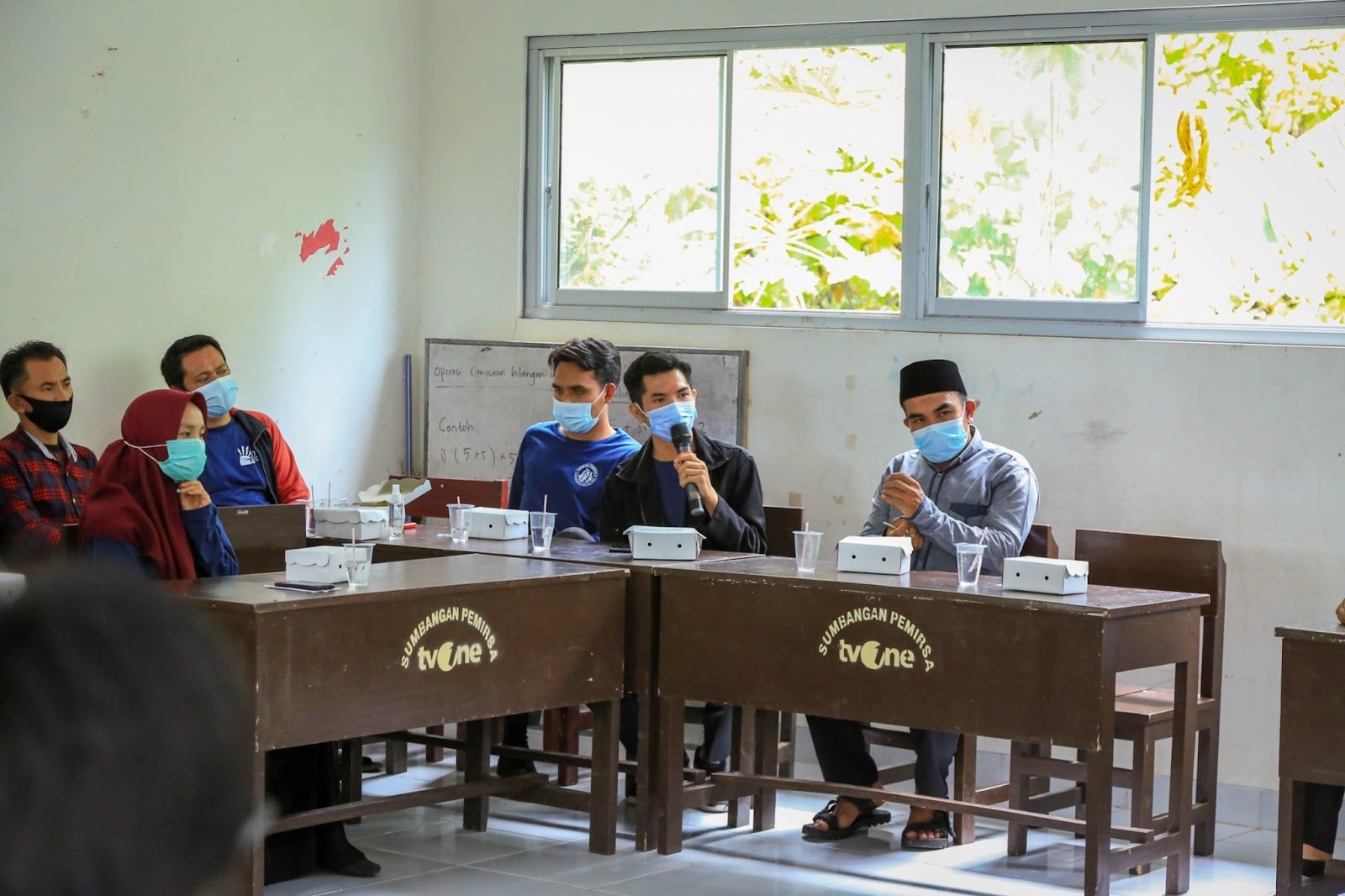
(Youth participants of the programme have become more confident in expressing their opinions. Photo: Lucky Putra/UNFPA Indonesia)
Marnia, a 36 year-old businesswoman, admitted that the training she participated in has impacted a lot of personal change in her life. For example, the programme has helped her improve her communication with her children. “Communication with my children has been much better. They are in their teenage years, and I have been able to talk to them about maintaining reproductive health, and the harms of child marriage,” Marnia said.
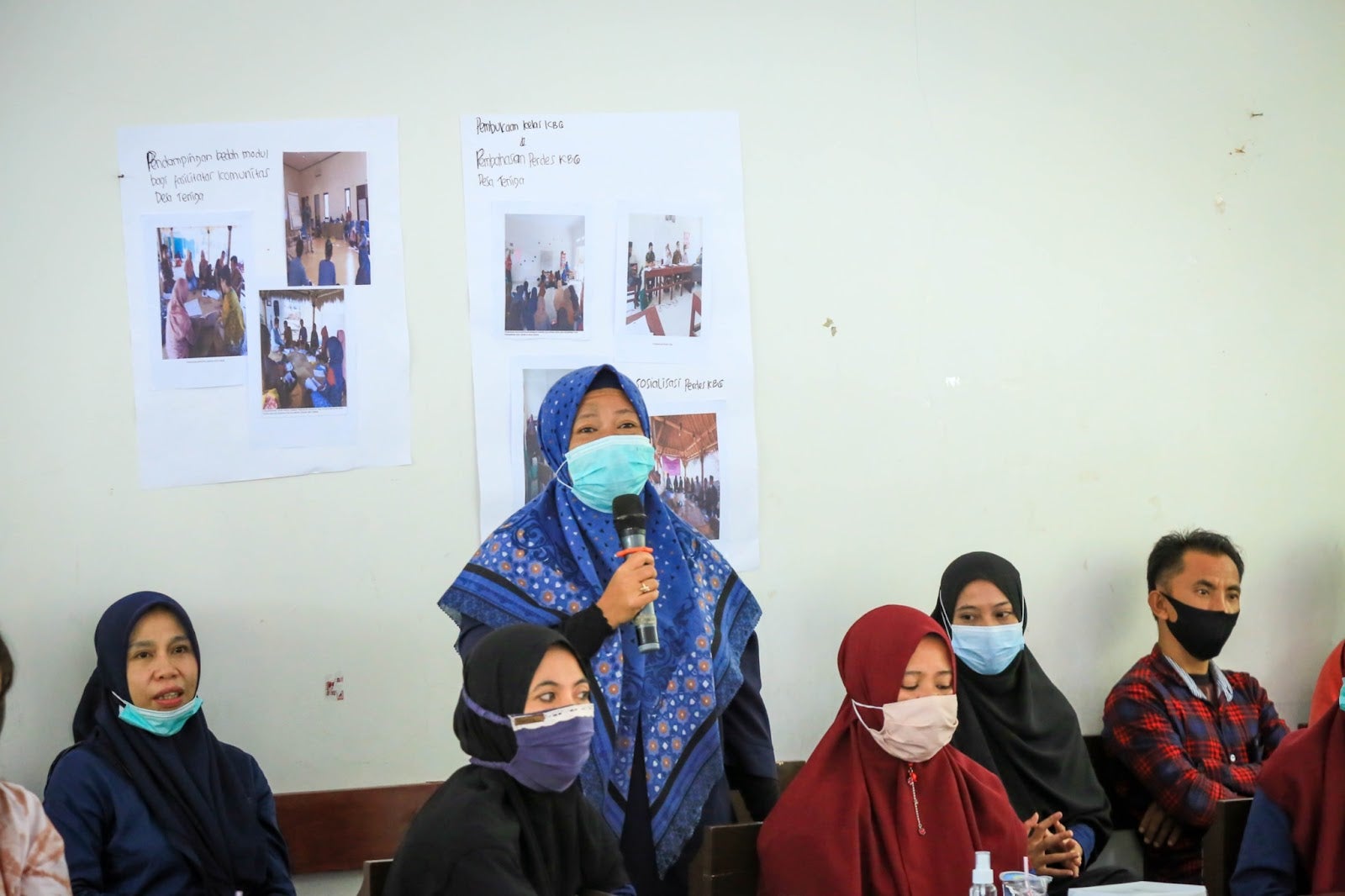
(Marnia has improved communication with her teenage children after training. Photo: Lucky Putra/UNFPA Indonesia)
Religious leaders also play a major role in promoting GBV prevention. Through training of trainers, religious leaders learn how to communicate with and educate the community on issues considered taboo to discuss such as reproductive health and violence against women. “It’s very difficult to discuss FGM/C in the village because it correlates with people’s beliefs,” explained Kartono, a religious teacher who became a training facilitator in the programme. “Thanks to this programme, we now have the basic capacity to approach the community and discuss not just FGM/C, but also child marriage and GBV,” he added.
The programme reflects UNFPA’s commitment to ensuring universal access to reproductive health services and information so that no one is left behind. It is also part of the collective effort to achieve the Three Transformative Results (Three Zeros) agreed by signatory countries at the 25 year anniversary of the International Conference on Population and Development (ICPD25) in Nairobi: ending preventable maternal deaths, unmet need for family planning, and gender-based violence and harmful practices against women and girls.
“There should be no more victims of violence and harmful practices. We will continue to build a community where there is zero tolerance for violence against women and children,” Anjali Sen, UNFPA Indonesia Representative, proclaimed at the pilot programme closing event in North Lombok District, on 30 November 2021.
The closing of the pilot does not mean the end of the programme nor the collaborative work to eliminate GBV and harmful practices. The pilot programme will be replicated and adopted in 43 villages in Lombok. “We would like to become a model for the other 43 villages to follow. What we want is also a follow-up action, so that our programme doesn’t stop here,” Maswandi, Head of the Tenige Village (which MOWECP selected as one of the exemplary women and children-friendly Villages for the elimination of GBV and harmful practices), asserted.
Lucky Putra
Media Assistant, UNFPA Indonesia

